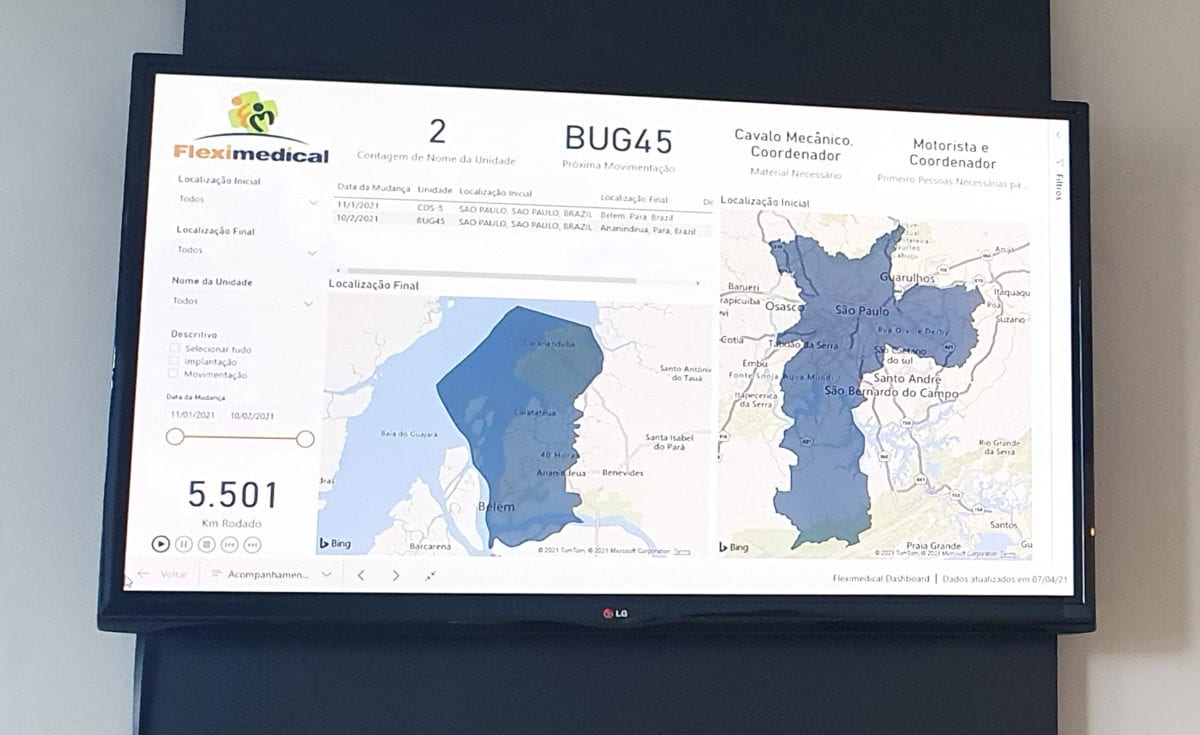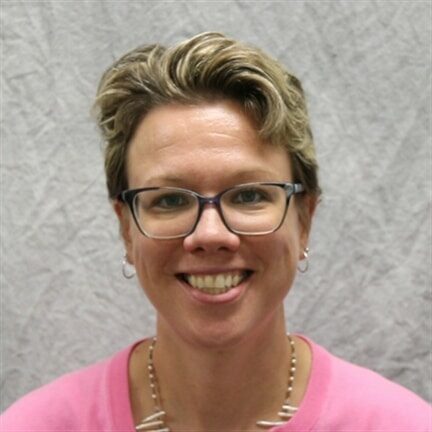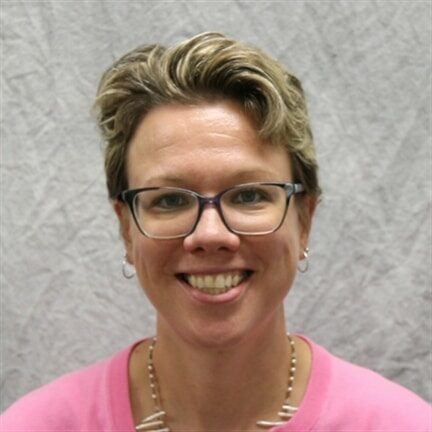A large-screen TV at Fleximedical’s office in São Paulo, Brazil, displays an interactive dashboard that the company uses to track the status of new mobile health units, repairing existing units and moving the units from place to place. More than 5,000 miles away, four DMU students played an active role in bringing this vision to fruition.
From Feb. 8 to March 5, 2021, six DMU students from the master’s degree programs in public health (M.P.H.) and health care administration (M.H.A.) completed a four-week virtual internship with Fleximedical, facilitated by our partner organization, Campus b. DMU students worked with medical students from Universidade de Ribeirão Preto on one of two projects, the dashboard and creation of an institutional slide deck.
Fleximedical is a Certified B corporation and social impact business that aims to create solutions to democratize access to health care in Brazil. Ricardo Lauricella, project manager at Fleximedical, served as the DMU students’ preceptor during the project.
“For us at Fleximedical, having the opportunity to create and operate a project with a foreign interdisciplinary team was unique. Even in a remote format we were able to use the digital tools available to take a virtual tour of our facilities,” he explained.
The final project has had an immediate real-world impact for increasing accessibility to health care in Brazil during the current urgent situation with the COVID-19 pandemic.
“In view of our characteristic of offering mobile health units, which serve the Brazilian public system, we did not have a sufficiently dynamic and updated platform to be accessed from anywhere and with the general strategic vision for better decision-making,” Ricardo says. “The Des Moines University students’ team built a dashboard accessible and appropriate to our needs, in order to give more visibility and transparency to our processes of management, implementation and maintenance of health structures in different regions.”
Ben Williamson, one of the M.P.H. students who worked on the dashboard project, commented, “I really enjoyed working on this project because it highlighted one of the things I’m most passionate about: making data-driven decisions in public health. When we are intentional about using the data we collect to improve the work we do, we can make a huge difference in the health of a population.
“Though the experience was virtual, it was still impactful and very well-organized by Campus b,” he added. “I also enjoyed learning about the Brazilian health care system and how it differed from the United States. In addition to working with students from Universidade de Ribeirão Preto, we also got to meet with professors and professionals who were experts in Brazilian health care and culture.”
Luciana Lopes de Sa Young, another M.P.H. student who worked on the dashboard, agreed the experience was beneficial to her education. “In this project, I see the chance to improve my understanding of public health programs and activities. We worked on a project that manages all steps to produce mobile units, including delivery and repair, to serve the needy and vulnerable population. Still focused on my concentration, I can envision the possibility of laws and policies that facilitate this type of intervention, which seeks to access and, therefore, tries to reduce inequities. The learning during my internship can also be extended to other public health practices, such as education, prevention and others, everything that facilitates the population’s access to services that are often inaccessible.”

João Antonio Affi Ninis, a fourth-year medical student at Universidade de Ribeirão Preto, enjoyed the multicultural aspect of the project. He said it was valuable to have students from DMU and from UNAERP in each group “so we could work, think, disagree, rearrange and finally get to a fine quality final work and presentation.”
He explained, “I couldn’t be happier with the project and, especially, the friends I have made and the multicultural experience I’ve had in that month. I have nothing but nice words about every institution and person that was involved in all this.”
Virtual opportunities offer increased accessibility for students to have a global health experience regardless of their ability to travel internationally.
“Because our online M.P.H. and M.H.A. students are typically employed full-time while completing their degree, some opportunities like global health trips are not possible for them,” said Rachel Reimer, Ph.D., chair of DMU’s public health department. “This past year has led to the opportunity for many more M.P.H. and M.H.A. students to engage in virtual international partnerships that have been exciting and meaningful for both the students and the host organizations. I am excited to see these partnerships continue.”

